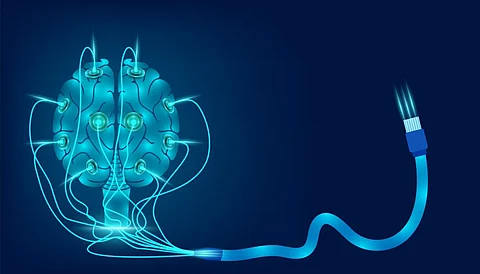WEDNESDAY, Dec. 6, 2023 (HealthDay News) -- For patients with schizophrenia, bilateral high-frequency repetitive transcranial magnetic stimulation (rTMS) can improve event-based prospective memory (EBPM), according to a study published online Dec. 6 in Neuropsychopharmacology Reports.
Fen Xue, from the Mental Health Hospital in Beijing, and colleagues examined the effects of rTMS on PM in 50 patients with schizophrenia compared to 18 healthy controls. Over four weeks, bilateral 20 Hz rTMS was administered to the dorsolateral prefrontal cortex for a total of 20 treatments; 26 patients received active rTMS and 24 received sham rTMS. Before and after treatment, assessments with the Positive and Negative Symptom Scale (PANSS), the Scale for the Assessment of Negative Symptoms (SANS), and PM test were performed.
The researchers found that compared with healthy controls, patients with schizophrenia had lower EBPM and time-based PM scores at baseline. The scores of EBPM improved significantly after rTMS treatment in patients with schizophrenia and were no different from healthy controls, while no improvement was seen in the time-based PM scores. In both groups, significant improvement was seen in the negative symptom scores on PANSS and the scores of almost all subscales and total scores of SANS.
"Whether rTMS can be as a PM therapy for patients with schizophrenia [needs] to be subject to bigger sample size, more rigorous, rational, and scientific clinical studies," the authors write. "In the near future, individual-defined network-based rTMS therapy may be a novel treatment approach for schizophrenia."
Abstract/Full Text


